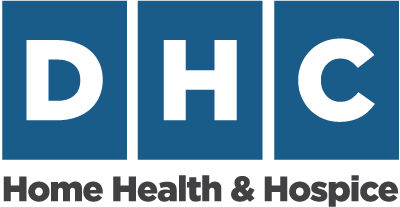
At Direct Health Care, our mission is to provide the most qualified staff to assist you, your loved one, and/or other members of the community to their highest level of comfort, health, independence, and happiness through value-driven, high-quality compassionate care.
Learn MoreHome Health Care
DHC’s home health care services provide professional, skilled staff dedicated to providing quality care to patients that are recovering, disabled, chronically or terminally ill while at home, to get better and continue living life.
Learn MoreHospice Care
Hospice care services are for patients whose illness is no longer responding to treatments or therapies. We help patients and their families focus on the end of life in a way that is dignified, comfortable, and with respect for their wishes.
Learn MorePersonal Care
Our personal care services are for our clients that don’t need skilled medical care, but still need or want someone to help take care of them. Everything from running errands to light housekeeping and meal preparation, we’ll handle it.
Learn MoreDirect Health Care is a trusted, leading provider of Lubbock home health care, hospice care and personal assistance services. We provide comprehensive home health care and hospice services for our patients.
Our Mission
At Direct Health Care, we have a simple mission. We aim to provide the most qualified staff to meet and exceed the needs of you, your loved one and/or other members of the community. Our staff is well-trained to serve you and offer you the highest level of comfort, health, independence and happiness. We achieve our goal by being deeply compassionate and value-driven. We have an A+ rating with the Better Business Bureau.
Lubbock Home Health Care
DHC provides Lubbock home health care with a highly professional and skilled staff that is dedicated to giving each patient the highest quality care. We serve a range of patients, each with unique needs. The staff at DHC is committed to giving each patient the care they require at home whether they are recovering from illness, disabled, chronically or terminally ill so that our patients can get better and continue living a happy, healthy life.
Home health care is, in essence, caring for a patient in the patient’s home. However, it is so much more than that. According to the Alliance for Home Health Quality and Innovation home health care includes many services, some of which are non-medical in nature. Direct Health Care is the Lubbock home health care provider you can trust. Our staff of highly qualified professionals go the extra mile for the patients they serve.
Lubbock Hospice Care
Hospice care services are available when a condition or illness no longer responds to treatments or therapies. Direct Health Care believes “each of us has the right to die pain-free and with dignity” as stated by the National Hospice and Palliative Care Organization. We provide our hospice patients with a team of professionals ranging from medical directors and nurses to social workers and chaplains.
In addition to providing support to the patient, our hospice services extend to help loved ones as well. We offer bereavement and respite care for families of our hospice patients. Direct Health Care strives to provide superior hospice care services.
Lubbock Personal Care Services
Direct Health Care offers personal assistance services to patients who do not require skilled care, but who still need or want help with day-to-day living. We offer two separate programs: PersonalTouch and Personal Assistance Services. These programs provide patients with services such as light housekeeping, meal preparation and medication reminders.
Our personal care staff help our patients live a full life with as much independence as possible. We not only care for the condition, we also care deeply for the patient. Direct Health Care encourages and empowers our home health workers to always exceed the expectations of our patients and to provide superior service far above the industry standard.
Direct Home Care is the most caring and skilled provider of Lubbock home health care. Our family based business is locally owned and operated, so we will always be available during times of need. Contact us today to learn more about our home health, hospice and personal care services.
